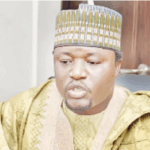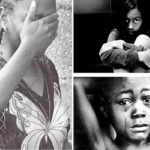In more than two decades, the Peoples Democratic Party (PDP) has had to set up a plethora of committees to reconcile aggrieved party faithful intermittently, with most of those efforts almost paling into insignificance due to impunity, notes KUNLE ODEREMI
THE choice of former President of the Senate, Dr Bukola Saraki, as the chairman of a seven-man reconciliation committee in the Peoples Democratic Party (PDP) marks his second coming as a peacemaker in about five years. It is seen as a vote of confidence by stakeholders in him as a stalwart of the main opposition party in the country. His first coming as a peace ambassador was in 2020, when the party was thrown into near cul de sac. He led other PDP stalwarts that included former governors and others to cement the crevices created by internal crisis and combustion.
His mandate from the PDP in November 2020 was to reconcile warring factions in the party and prevent further defections to the ruling All Progressives Congress (APC), so the committee moved swiftly to such states like Cross River, Zamfara, and Ebonyi. It succeeded in preventing the defection of several PDP governors to the APC, including the then Governor Ben Ayade of Cross River and Governor Bello Matawalle of Zamfara, who were on the verge of leaving PDP. It was also credited with addressing the frosty relationship between Governor Ayade and his then Rivers State counterpart, Nyesom Wike. The cold war had posed stability in PDP.
Following the resolution of the emergency meeting summoned by PDP Governors Forum penultimate Monday, held at the Bauchi State Lodge in Abuja, with former governors, members of the Board of Trustees (BoT) of the party and other main stakeholders, Saraki was named as the head of the new reconciliation committee. But less than 24 hours after the meeting, a principal character in the PDP imbroglio and now Minister of the Federal Capital Territory (FCT), Mr Nyesom Wike had media parley in Abuja, where he ventilated his views on the predicament of the party, challenges, the way forward and future of the PDP. Incidentally, Wike, who is the immediate past governor of Rivers State, was of the view that the party needs to be altruistic in its quest to resolve its internal problems if it must regain its ride of the next political dispensation.
ALSO READ NIGERIAN TRIBUNE: Ogbomoso joins Ibadan, rejects Alaafin as permanent chair of Obas council
Other party elders, including a former governor Benue State, Senator Gabriel Suswam feared that PDP may not service its current travails. Suswam expressed doubts on the possibility of the PDP overcoming the exodus of its faithful to other parties. He said: “it is a 50-50 situation, this last effort which is headed by Senator Saraki, if we are unable to address the issue, then of course it is likely that we might not have PDP the way we have it now. That is unfortunate.” He added: “A lot of people are just hanging on waiting to see the ultimate end of this party, whether there is light at the end of the tunnel in the efforts made by Senator Saraki that will be seen in the next two weeks.”
Tasks before Saraki
While some party buffs believe that the challenges of the PDP are about leadership, others blame the situation on the role of syndrome of sacred cows, the euphemism for those who regard themselves as the untouchables, just as other party faithful accused external forces of instigating the intra party feud. Nonetheless, there are issues of factions weakening the critical national organs of the party. The organs include the National Executive Committee (NEC and the National working Committee (NWC) and the Board of Trustees (BoT), as well as state chapters. The problem of who picks PDP tickets also has always split the party down the line. The aftermaths subsist even long after every election circle as the main gladiators and tendencies go back to the trenches to the detriment of the capacity of the party to return to its winning days a onetime ruling party in the country.
There is equally the question about leadership at the centre, which most party faithful believe is often suspect on trust and confidence. . Undue loyalty and obeisance to a tendency involved in uncanny power play and struggle have left the party at the mercy of power mongers and their foot soldiers to the chagrin of most of observers. The lack of compromise, issue of ego, inordinate ambition, attachment to cleavages, sectional allegiance consistently dog the path of the PDP. Coupled with this are the absence give and take, impunity, gross indiscipline and disregard for internal democracy. The issues have constituted a cog in the wheel of PDP progress. The party often flagrantly breaches the provisions of its Constitution on vital issues affecting the choice of candidates for major elections, dispensing justice, applying the internal mechanism for conflict reconciliation and arbitration.
Besides, the ownership mentality of the PDP demagogues is another major burden of the party over the years. The ownership and appropriation mentality by perceived the power centres, power mongers and financiers with deep pockets make sure that the highest bidders pick party tickets. These issues form the root causes of the disaffection in the PDP and degenerated to the dizzying season of defections of high profile leaders. But a former PDP national secretary, Senator Umaru Tsauri, says the party remains strong despite the wave of defections to the APC. He opined: “ There is going to be a massive coming back to PDP. Our problem, you know it, I know it, and it’s our leadership. I believe with the NEC coming on board, that will make or break the PDP. If the PDP is made that day, then it means we’re going ahead. If the PDP is broken that day, then it’s going to be too bad.”
Ekwueme era
In its 27 years life circle, PDP has set up many committees to tackle different shades of eternal crises among members. Second Republic Vice President, Dr Alex Ekwueme, was drafted by the late President Umaru Musa Yar’Adua in 2007 to head an 11-member committee aftermath the crisis caused by the presidential primary of the party. The members included other prominent politicians such as Mallam Adamu Ciroma, Professor Jerry Gana, Ambassador Aminu Wali, Alhaji Shuaib Oyedokun, Dr Bello Mohammed, Ambassador Fidelis Tapgun, Chief Bode George, Lady Ime Udom and Dr Stephen Oru, who served as secretary. The panel which submitted its report to the Dr Ahmadu Ali-led PDP National Working Committee recommended that the 2006 membership revalidation should be revisited, if genuine reconciliation was to be achieved, appeased former Vice President Atiku Abubakar, who dumped the party over alleged manipulated primary. The Prince Vincent Ogbulafor-led executive later set up an 18-man committee in 2008 to review the report of the Ekwueme Committee, in line with its resolve to reorganise and enhance internal democracy in the party. The committee headed by the former National Deputy Chairman, Dr Bello Muhammed, was mandated to study the report critically. The partial implementation of the review panel report led to the return of Atiku and few others, while Chief Audu Ogbeh and George Akume refused to return to the party.
Five years after, the PDP was embroiled in another crisis that warranted the setting up of a reconciliation committee. This was under Alhaji Bamanga Tukur, as pdp national chairman with a mandate to bring back aggrieved members in Kano State. The eight-member committee was led by the late Chief Graham Douglas to reconcile, the feuding members in Kano State.
Similarly, Tukur appointed a committee-led by a former PDP National vice chairman, South-West Zone, Alhaji Oyedokun, to reconcile the party members in Benue state. Tukur embarked on a reconciliation tour to appease the governors who shunned the zonal reconciliation meetings. The failure of the zonal reconciliation tours by Tukur led to another tour of by the chairman Board of Trustees, Chief Tony Anenih. The tour took him to Kano, Jigawa, Niger, Rivers, Kogi states. Anenih’s tour failed tos restore peace.
Other peace panels were the Sule Lamido Committee set up to reconcile Governor Murtala Nyako group and the Tukur faction in Adamawa State and the Ishola Filani panel to reconcile the aggrieved members in the South-West. The Governor Ibrahim Shema of Katsina State panel was set up by the PDP Governors Forum, after the sudden exit of the loyalists of former President Olusegun Obasanjo from the National Executive Committee (NEC) in the buildup to the 2015 elections. The South-West Zonal Caretaker Committee also inaugurated a six-member committee for each state in the zone, with the mandate to investigate the cause of the internal wrangling. Also in the past, the PDP constituted a 30-member committee to reconcile divergent interests. It was chaired by the then Governor Seriake Dickson of Bayelsa State during the tenure of President Goodluck Jonathan who was seeking a second term in office. The leadership of the committee was mired in controversy since Jonathan and Dickson hail from the state.
Yar’Adua era
The first major attempt to address the internal crisis came under President Umaru Yar’Adua, who invited Ekwueme to spearhead a reconciliation initiative in 2008. The effort involved a nationwide tour to meet with aggrieved members, with the aim of healing the rifts within the party. However, Yar’Adua’s untimely death meant that this initiative was never fully implemented. The recommendations of the committee restored relative peace. “The committee has done a good job, crisscrossing the major zones of the country, pulling opinions, evidence and grievances together. The committee has duly submitted its report to our party and the party has accepted it. Unfortunately not much has happened to the report, but it is too important to be abandoned on the shelf,” Prince Vincent Ogbulafor, who was the national chairman of the party at the time, regretted.
In 2013, Jonathan led a reconciliation committee aimed at addressing grievances within the party, particularly those arising from the election of Bamanga Tukur as the party’s national chairman. However, its assignment was complicated by the fallout from the Independent National Electoral Commission’s (INEC) report on the PDP’s 2012 convention, which highlighted irregularities in the election of party officials.
WATCH TOP VIDEOS FROM NIGERIAN TRIBUNE TV
- Let’s Talk About SELF-AWARENESS
- Is Your Confidence Mistaken for Pride? Let’s talk about it
- Is Etiquette About Perfection…Or Just Not Being Rude?
- Top Psychologist Reveal 3 Signs You’re Struggling With Imposter Syndrome
- Do You Pick Up Work-Related Calls at Midnight or Never? Let’s Talk About Boundaries







